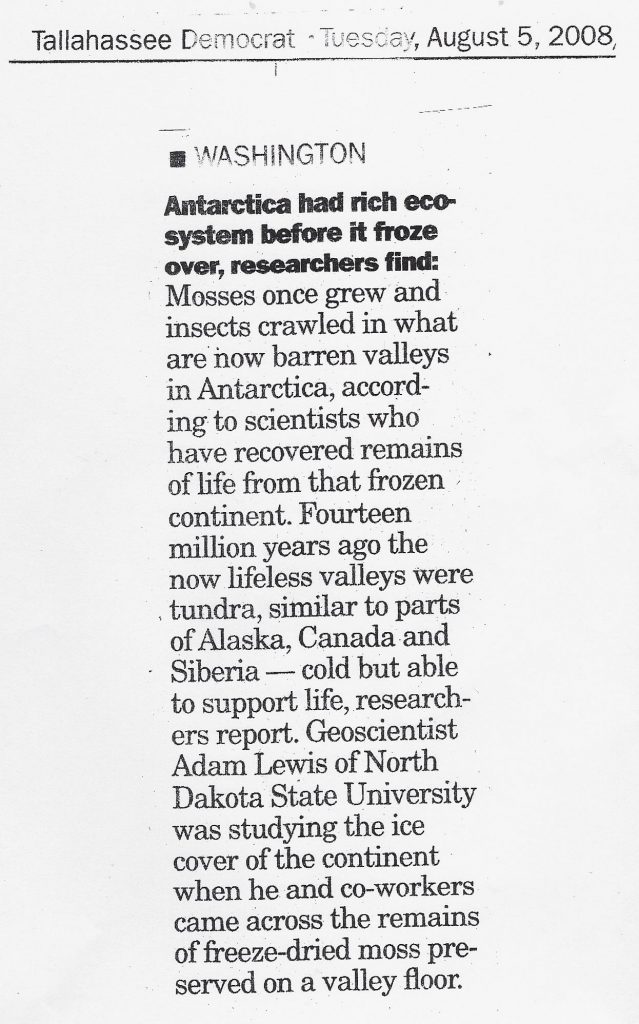Antarctica Had a Rich Ecosystem Before the Flood

“In the six hundredth year of Noah’s life, on the seventeenth day of the second month–on that day all the springs of the great deep burst forth, and the floodgates of the heavens were opened. And rain fell on the earth forty days and forty nights”—Genesis 7:11,12 NIV
“For forty days the flood kept coming on the earth, and as the waters increased they lifted the ark high above the earth. The waters rose and increased greatly on the earth, and the ark floated on the surface of the water. They rose greatly on the earth, and all the high mountains under the entire heavens were covered. The waters rose and covered the mountains to a depth of more than fifteen cubits. Every living thing that moved on land perished—birds, livestock, wild animals, all the creatures that swarm over the earth, and all mankind. Everything on dry land that had the breath of life in its nostrils died. Every living thing on the face of the earth was wiped out; people and animals and the creatures that move along the ground and the birds were wiped from the earth. Only Noah was left, and those with him in the ark.” (Genesis 7:17-23 NIV)
The remains, including the mosses found in Antartica, were apparently quick-frozen, and instantly preserved, at the flood of Noah’s day, as most of “the waters that were above the expanse” (Genesis 1:7 ESV; NASB), and also “all the springs of the great deep burst forth,” suddenly fell onto the earth. The 14 million years ago that scientists assign to the preservation of the freeze-dried moss in Antartica conflicts with the Biblical time period of about 4,500-6,000 years ago for the flood of Noah’s day, but it’s wise to keep in mind that scientists calibrations of some events have been proven to be off the mark.
One notable example of scientific dating’s huge miscalculations is the 1986 calibration of the age of a rock piece broken off of the “Little Grand Canyon” of Mount St. Helens, which itself had been formed in only three hours on June 12, 1980 . This six year old rock was calibrated by scientists in 1986 to be 2.4 million years old. So, while we’re grateful for much of the work of dedicated scientists, sometimes we see that “the wisdom of this world is foolishness in the eyes of God” (1 Corinthians 3:19 NAB).
As strong as the scientific evidence is that there was a global flood as described in Genesis, there is even more powerful evidence. What is that?
“As it was in the days of Noah, so it will be in the days of Noah, so it will be at the coming of the Son of Man. For in the days before the flood people were eating and drinking, marrying and giving in marriage, up to the day Noah entered the ark: and they knew nothing about what would happen until the flood came and swept them all away. That is how it will be at the coming of the Son of Man”—Matthew 24:37-39 NIV
It is the testimony of the Son of God, Jesus Christ, as recorded above by the inspired Bible writers Matthew and Luke (Luke 17:26,27; 2 Timothy 3:16).